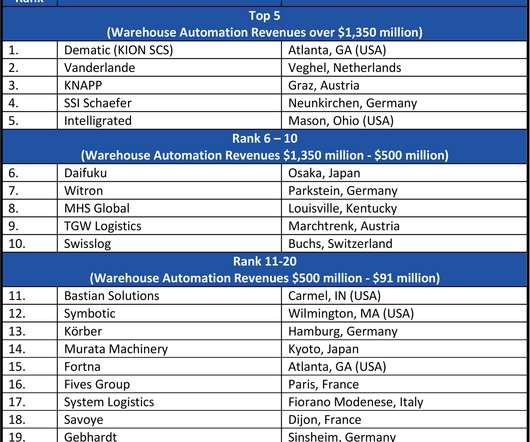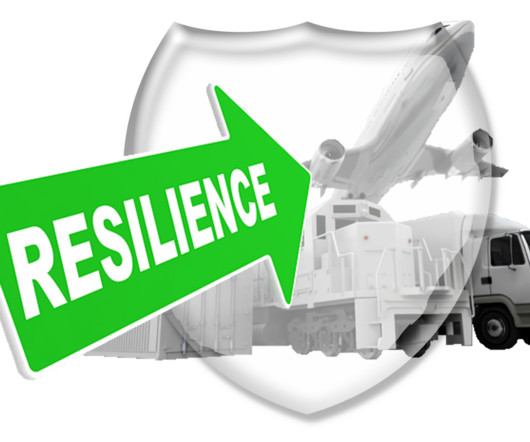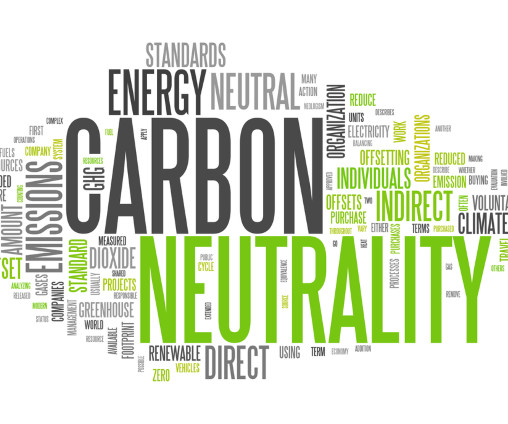Top 20 Warehouse Automation Suppliers Worldwide
Logistics Viewpoints
OCTOBER 26, 2022
The process involves an analysis of large amounts of information and interviews with executives from numerous warehouse automation providers; and concludes with the publication of ARC’s Warehouse Automation & Control Market Research Study. I will soon be publishing the 2021 base-year study with a five-year forecast through 2026.
















Let's personalize your content